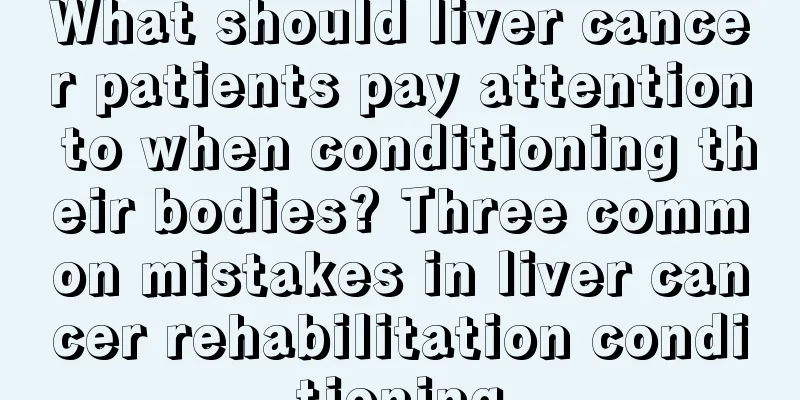Pay attention to 4 points when boiling water at home. Drinking it wrong may cause cancer and premature aging

|
China has a long history of tea culture. Whether in ancient times or modern times, most families are still accustomed to drinking boiled water. However, there are many things to pay attention to when boiling water and drinking boiled water, especially now that water pollution is serious. If you don't pay attention to drinking water health, you can easily get sick. So what are the key points to pay attention to when boiling water? When the water is about to boil (80℃-90℃), the lid of the kettle should be opened. Because there are more and more organic pollutants in water now, some substances are volatile and will evaporate with water vapor when heated. Therefore, when the water is about to boil, you should open the lid of the kettle to allow these substances to evaporate as much as possible. After the water boils, wait for about 3 minutes before turning off the heat! This is because ordinary river and lake water must be treated with chlorination after being sent to the water plant to remove impurities such as microorganisms. But at the same time, chlorine interacts with residual organic matter in the water to form toxic and carcinogenic compounds such as halogenated hydrocarbons and chloroform. The content of halogenated hydrocarbons and chloroform is closely related to the change of water temperature and the duration of boiling. When the water temperature reached 90°C, the content of halogenated hydrocarbons increased from 53 micrograms per liter to 191 micrograms, and the content of chloroform increased from 43.8 micrograms per liter to 177 micrograms, both exceeding the national standard by twice. When the water temperature rises to 100°C, the contents of halogenated hydrocarbons and chloroform drop to 110 micrograms and 99 micrograms respectively, which still exceed the national standard. If boiling continues for 3 minutes, the halogenated hydrocarbons and chloroform contents drop to 9.2 micrograms and 8.3 micrograms respectively, at which point the water becomes safe drinking water. Of course, boiling water for a longer time is not necessarily better, because the longer it is boiled, the more the non-volatile harmful substances and nitrites in the water will be concentrated due to the evaporation of the water, and the content will increase relatively. Drinking such water is also harmful to the body. Water cannot be boiled repeatedly, it is best to drink it immediately after boiling. Flowing water has a certain self-purification effect, and the most ideal drinking water is fresh water. Scientific research has found that water ages very quickly. Water molecules have a chain structure. If water is not often subjected to strong impacts, that is, if water is not often in motion but in a static state, this chain structure will continue to expand and extend, becoming aged water, commonly known as "dead water". This kind of aged water has very poor vitality. If minors drink it frequently, it will significantly slow down cell metabolism and affect growth and development. If middle-aged and elderly people drink aged water frequently, it will accelerate aging. It can be seen that the harm of drinking aged water to human health cannot be underestimated. Studies have shown that deep well water that has just been extracted and is in a state of constant movement and impact contains only 0.017 mg of nitrite per liter. But after being stored at room temperature for 3 days, it will rise to 0.914 mg. Water that originally did not contain nitrite will produce 0.0004 mg of nitrite per liter of water after being stored at room temperature for one day, and it will be as high as 0.73 mg after 20 days. Nitrite can be converted into carcinogenic nitrosamines. Relevant experts pointed out that the habit of using bottled water when needed and storing it for a long time when not needed is not good for health. It is best to turn on the water for 5-10 minutes early in the morning every day to avoid rust contamination of the pipes and the formation of stagnant water in the pipes. Special attention should be paid to faucets that have not been opened for a long time. This water can be used for cleaning and washing. The editor has introduced to you the precautions when boiling water. So can you drink boiled water without restraint? Although drinking more water is a commonly used folk remedy, this water cannot be drunk casually, or not everyone can drink it casually. Four groups of people should not drink too much water Although water is an important component of the human body and plays an important role in transportation and balance in the body, not everyone believes that "drinking more water is good for health." The following groups of people must control their water intake in daily life. Kidney disease patients Patients with chronic renal insufficiency and kidney disease should not drink too much water. Patients with chronic renal insufficiency or renal failure are unable to excrete water and salt normally due to the gradual loss of their kidney function. Kidney disease patients lose a large amount of protein in their bodies through urine, which reduces the blood osmotic pressure. If they drink too much water, edema will become more serious. Heart disease patients Patients with heart disease, especially those with heart failure, are prone to edema throughout the body due to abnormal renal blood flow and perfusion function, which prevents the body from excreting water smoothly. If you drink too much water, it will increase the burden on organs such as the heart and lungs, and may even induce hyponatremia, leading to dangerous symptoms such as nausea, vomiting, whole body convulsions, and coma. Abnormal liver function and ascites People with abnormal liver function may suffer from edema due to other reasons besides their inability to synthesize blood proteins in their bodies. Therefore, the blood osmotic pressure decreases, water easily accumulates in the tissues, and water often accumulates in the abdomen and chest. Such patients should not drink too much water to avoid aggravating the symptoms of edema. If edema occurs in the body, the daily water intake should be limited according to the actual situation of the edema. Water intoxication patients Water intoxication is mainly caused by drinking too much water, which leads to excessive accumulation of water and induces hyponatremia. In addition, too much water in the body will increase the burden on the heart. Especially in daily life, when the human body is severely thirsty and dehydrated, drinking a large amount of low-mineralized water or purified water can easily cause electrolyte imbalance in the human body, hypotonic dehydration, and thus water poisoning. |
Recommend
9 tips for spring cleaning
The house should also be cleaned up, but the comp...
Specific schedule for baby vaccinations
As parents, we need to know the time for babies t...
Are polyps on the stomach serious?
Gastric polyps are of course a serious problem. I...
What is the applicable scope of rectal cancer surgery
What is the indication for rectal cancer surgery?...
Bone bulge behind the ear
What is the bony protrusion behind the ear? With ...
What is the correct way to apply essence?
As we age, the self-repair ability of human cells...
What is the effect of soft Bupleurum?
Bupleurum is a common Chinese medicinal material,...
Causes of post-embolism syndrome
So far, there have been no reported cases of deat...
Why do I feel stomach discomfort after taking a nap
A lunch break is very necessary for a worker who ...
Heart rate when sitting and standing
Our physical health is determined by many factors...
Is malignant melanoma contagious?
Melanoma has already endangered the life and heal...
Causes of ulcers on gums
In fact, many people nowadays do not pay attentio...
Things to note before doing an ultrasonic gastroscopy
Gastroscopy is a method of examination that can o...
Lemon juice hair removal steps
In our lives, many women have very abundant hair....
Can I steam on the first day of my period?
Every woman has those few days every month, which...









